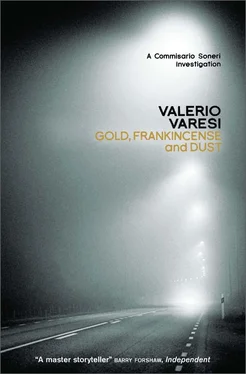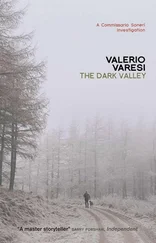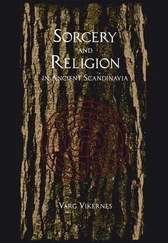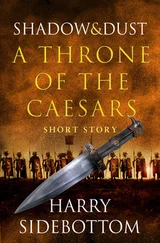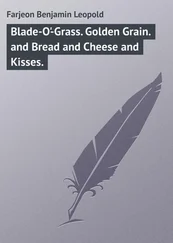Valerio Varesi - Gold, Frankincense and Dust
Здесь есть возможность читать онлайн «Valerio Varesi - Gold, Frankincense and Dust» весь текст электронной книги совершенно бесплатно (целиком полную версию без сокращений). В некоторых случаях можно слушать аудио, скачать через торрент в формате fb2 и присутствует краткое содержание. Год выпуска: 2013, ISBN: 2013, Издательство: Quercus Publishing Plc, Жанр: Полицейский детектив, на английском языке. Описание произведения, (предисловие) а так же отзывы посетителей доступны на портале библиотеки ЛибКат.
- Название:Gold, Frankincense and Dust
- Автор:
- Издательство:Quercus Publishing Plc
- Жанр:
- Год:2013
- ISBN:9781906694371
- Рейтинг книги:4 / 5. Голосов: 1
-
Избранное:Добавить в избранное
- Отзывы:
-
Ваша оценка:
- 80
- 1
- 2
- 3
- 4
- 5
Gold, Frankincense and Dust: краткое содержание, описание и аннотация
Предлагаем к чтению аннотацию, описание, краткое содержание или предисловие (зависит от того, что написал сам автор книги «Gold, Frankincense and Dust»). Если вы не нашли необходимую информацию о книге — напишите в комментариях, мы постараемся отыскать её.
Gold, Frankincense and Dust — читать онлайн бесплатно полную книгу (весь текст) целиком
Ниже представлен текст книги, разбитый по страницам. Система сохранения места последней прочитанной страницы, позволяет с удобством читать онлайн бесплатно книгу «Gold, Frankincense and Dust», без необходимости каждый раз заново искать на чём Вы остановились. Поставьте закладку, и сможете в любой момент перейти на страницу, на которой закончили чтение.
Интервал:
Закладка:
The door opened and the same officer as before came back in. “We’re ready,” he announced, approaching Medioli.
“So am I,” Soneri said, placing his hands on the desk in the manner of a man who has nothing more to ask. Medioli appeared disconcerted. “Are you locking me up?” he asked ingenuously.
The officer looked across at Soneri in bewilderment. “The magistrate will question you tomorrow,” Soneri said.
“I was beginning to feel at ease with you,” Medioli murmured, seeming overcome by despairing regret.
Soneri gestured to make him understand that this was routine and there was nothing he could do about it. The scene seemed to him, yet again, a kind of dream.
The old man stayed in his seat for a bit, and when the officer took him by the arm he had the same look of disbelief he had had at the beginning.
3
Angela and the commissario woke very early, when it was still as dark as midnight. He imagined that the previous evening’s mist still lingered on outside and that everything was damp. In some way this idea enhanced the dryness and warmth of his own little corner. Angela stretched out her hand and slipped it under his pyjamas. She too was warm and her caress gave him reassurance and brought back childhood pleasures. A sense of delight mingled with unease pervaded his whole being, making him feel almost ashamed of indulging in a passivity which clashed with his normal role in life. It was as if he was letting himself go, regressing towards feelings which, however distant, were still keenly felt. As she searched more and more insistently for him, the commissario felt her body draw closer and at that moment he grasped how some men might find in a woman their lost mother, in a different way perhaps but a way which was perfectly recognisable. He understood how adulthood might well kill many things, yet without really killing them off.
Later the commissario told Angela about the evening before in the yellow mist, the animals emerging from it, the bulls, the fires burning in the night, the car speeding off and the story of Medioli.
“What is this? Euphoria? You sound drunk — on me, I hope.”
“It does seem like a tale told by a drunk,” he agreed. “The mistake lies in our way of thinking. We believe that everything should unfold in accordance with a predictable pattern, and when that doesn’t happen, we’re left baffled.”
“When you start to philosophise, you’re always troubled by bad thoughts,” she said, putting her arms round him.
“Have you ever had any dealings with Roma travellers?”
“I have defended one or two in trials for theft. I was duty solicitor. Why?”
“Yesterday evening I ended up in a camp, the one where Medioli had been living. It’s a world apart, with its own rules and regulations.”
“Laws as we know them — written laws — are tied to territory, and they have none.”
“And there are no written laws for them. It’s all based on tradition.”
They were interrupted by the ringing of the telephone.
“There’s no chance of us ever getting a long lie-in even if the alarm doesn’t go off,” she said savagely.
“Commissario, I’m at the station,” Juvara began warily, as was his wont.
“Have a good trip! You could have warned me you were off on your holidays.”
“No, I mean, I’m at the bus station …”
“A pilgrimage to Medjugorje, is it?”
“Sir, something strange, something very unpleasant has occurred.”
“What?” the commissario asked, turning serious.
“A man, quite an old man has been found dead on the coach from Bucharest.”
“Was he murdered?”
“Seems not, but they called us in anyway, as a precaution. You know how it is in these cases.”
“Juvara, tell me clearly what you think. Does it look like murder or not?”
“At first sight the doctor believes it was death from natural causes. Perhaps a heart attack. Date of birth 1931, so not in the first flush of youth. But there is one suspicious fact.”
Soneri seriously disliked the inspector’s way of delivering his report piecemeal. “What is it, dammit?”
“Death occurred many hours ago.”
“You mean he made the whole journey as a dead man? No-one realised …”
“Worse than that. The coach travelled through the night and they were probably all asleep. But he’s shut his eyes for good.”
“And when they woke up, no-one stopped the coach?”
“No they didn’t. No-one noticed a thing. Maybe they thought he was still resting. They were mainly childminders and carers, and when they all got off, the driver went back into his cabin to turn the bus round, without paying any attention to the old man. He says he didn’t see him. I can understand that, after driving through the night.”
“So, who did find him?”
“The passengers setting off for Romania this morning.”
“In other words, a whole day went by and he was left on the bus parked in the station?”
“Exactly so. This morning, a woman couldn’t find a seat, so the driver did a count and found he had one extra passenger. It was the old man. He was siting in the corner at the back. You know the place where the kids like to sit on a school outing? Well, they gave him a shake, but he was already rigid.”
“Another surprise. O.K., I’ll be there right away. In the meantime, call the police doctor.”
“Commissario, there’s no need for you to come. I’m here already. It looks to me like a case which’ll be solved in an hour at the most.”
“No, I’d be as well to come along.”
He got up and dressed hurriedly. As he was going out, Angela asked what had happened.
“I’ll have another chapter in this rum tale to tell you this evening.”
At the bus station, which the people in Parma familiarly call the Pensilina , the crowd of Romanians hoping to get away were crammed together in the waiting room. It was a huge coach with a trailer for suitcases attached. The stages of the journey and a large blue globe had been painted on the side.
“They’re nearly finished, commissario,” Juvara announced as the ambulance men tried to manoeuvre a steel stretcher with the corpse out of the coach. The police doctor got off after them. “I’m pretty sure it was a heart attack,” he said to Soneri.
“Did he have any luggage?” Soneri wanted to know, showing little interest in the cause of death.
Juvara, the doctor and the other officers looked around in embarrassment, trying to come up with an answer.
“Check up, would you? Do we know his name?”
This time the inspector was able to step forward confidently. “He was called Igor Dondescu. He had a three-month visa.”
“Get in touch with Interpol. Let’s see if they can come up with anything.”
Juvara looked puzzled. He could not understand why Soneri was showing such interest in the case.
“I want to know where he was born, what work he did, who his relatives were.” He himself was a bit surprised at his own zeal, especially when he noticed the puzzled expressions of Juvara and the other officers. He was not sure why he was dedicating so much attention to the story of an old man from so far off, but the incident was having the same effect on him as a bullet delivered in an envelope.
Meanwhile, another policeman came up to him with a worn, shabby bag in imitation leather. “It seems it belonged to the dead man. It was under the seat.”
Soneri took it. It was old and threadbare and the handles were coming off. It looked the very picture of poverty, and in it he recognised the hardship borne with dignity which had been such a feature of his childhood years. As he was examining it, a group of Romanians gathered menacingly around him.
Читать дальшеИнтервал:
Закладка:
Похожие книги на «Gold, Frankincense and Dust»
Представляем Вашему вниманию похожие книги на «Gold, Frankincense and Dust» списком для выбора. Мы отобрали схожую по названию и смыслу литературу в надежде предоставить читателям больше вариантов отыскать новые, интересные, ещё непрочитанные произведения.
Обсуждение, отзывы о книге «Gold, Frankincense and Dust» и просто собственные мнения читателей. Оставьте ваши комментарии, напишите, что Вы думаете о произведении, его смысле или главных героях. Укажите что конкретно понравилось, а что нет, и почему Вы так считаете.
